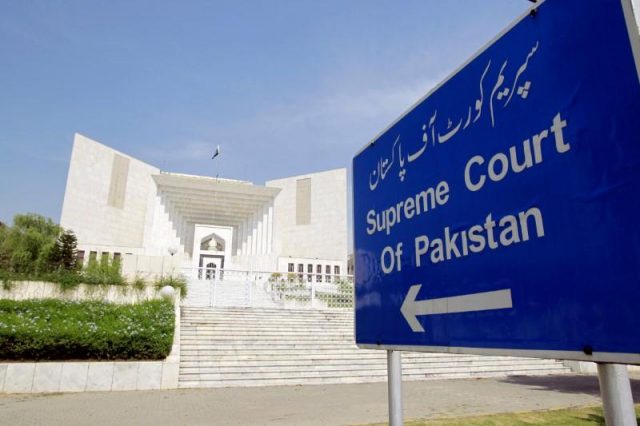Attorney General for Pakistan (AGP) Khalid Jawed Khan said in regard to the upcoming Senate elections that one method encourages selling of votes, while the other ensures transparency.
The AGP stated that there had been at least 11 instances where the apex court had adhjucated on political matters and maintained that the government was only asking for an interoperation of Article 226 of the Constitution.
This was said to a five-judge bench, headed by Chief Justice of Pakistan (CJP) Gulzar Ahmed, during the Supreme Court hearing on the presidential reference on holding open ballots during the upcoming elections.
“The thrust of your arguments is [based] on morality but the issue is political,” Justice Yahya Afrid said. The justice also wondered why the government did not approach the parliament itself to change the manner of the elections.
Justice Ijaz-ul-Ahsan said that a Member of Provincial Assembly (MPA) should be able to stand up and face the consequences of his or her vote if they vote according to their conscience. He also asked whether deviating from one’s party line in the secret balloting method was dishonesty.
The AGP said in reply that MPAs were not able to give vote in Senate elections and were bound to follow their party’s policy. In reply, Justice Ahsan said that free balloting was more suited to a secret ballot.
The AGP maintained that the elections being held under the law could be challenged under the law, but elections being held under the Constitution cannot not be challenged under the Constitution.
The hearing was adjourned until Thursday.
On Monday, the Jamiat Ulema-e-Islam-Fazl (JUI-F) had requested the Supreme Court to declare the presidential reference filed by the incumbent government for an open ballot in the upcoming Senate elections as non-maintainable.
JUI-F’s lawyer, Kamran Murtaza, had submitted a reply on Monday to the apex court, wherein the reply had said that the reference filed by the Pakistan Tehreek-e-Insaf (PTI) “carries an inference, not in good faith, lacks jurisdiction and is meant to bypass the parliament, therefore, is liable to be declared as such”.
It had pointed out that as a political party of the country, the JUI-F has a stake in both the sanctity of the elections as well as in the maintaining of the mandate of the Constitution.
The reply had also stated: “The reference under the reply of paragraph 10 states that elections of the President of Pakistan are held “under” the Constitution, however, Entry 41 in Part 1 of Fourth Schedule of the Constitution also provides for election of president. The Elections Act 2017 does not state anywhere that it is enacted pursuant to Article 222 of the Constitution.”
It had added that, “The conduct of the president also discussed when it filed a reference against an honourable judge of this august court, although the majority view held that malice could not be established behind the filing of reference, however, the reference was set aside.”
The statement had stressed “the reference draws comparison to Senate elections with local government elections as this Honourable Court in Civil Appeals No. 760 & 765 of 2016 held that the Sindh government is competent to legislate law to hold elections either by show of hands or secret ballot. This comparison is deeply flawed as Article 140-A of Constitution provides that each province shall by law, establish a local government system and that the elections shall be held by Election Commission of Pakistan (ECP)”.




